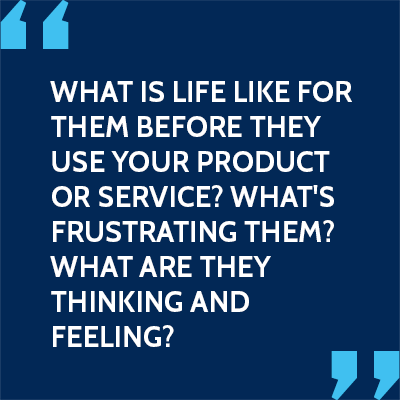The email left me in tears.
It came from the patient of one of our clients, a private dermatology clinic. That morning, we’d sent out an email to their list about rosacea, a chronic skin condition that causes redness and pimples on the face, encouraging patients to book a consultation.
Several hours later, they received one response I will never forget.
It started: “Nothing has ever resonated with me more than your email.”
The young woman, “Jenny”, who had never before visited the clinic, explained that she had suffered for years. But her GP made her feel guilty about seeking treatment for “cosmetic issues” on the NHS, and as a result, she had stopped looking for help.
Now she can’t leave the house without applying a thick layer of makeup, but she is afraid that others judge her for this. So where possible, she stays home – leaving her depressed.
Finally, after requesting an appointment, she apologised for the length of her email. “This is the first time I’ve ever written about something that has been a burden for so long, and it sort of exploded out.”
Wow.
The emotions she expressed were so raw, it was impossible not be moved. Her email was nothing short of a cry for help. And while it’s easy to be cynical about marketing, here was a welcome reminder that at its best it can be a force for good, helping people with genuine need access the help they crave.
So what was in the original email that resonated with “Jenny” so strongly? And what can we all learn?
It’s simple. The email I’d written for the clinic profiled another woman with rosacea, talking at length about her experiences before and after seeking treatment.
The “before” was not that dissimilar to what “Jenny” described. She, too, didn’t like leaving the house and thought people were judging her because of the way she looked. “After”, she had her confidence and social life back. She described an immense sense of relief that her condition was under control.
 In my last piece, I talked about how powerful your copy becomes when you inject emotion into your marketing content. This scares many companies. They think it’s difficult, it’s alchemy. They imagine that in order to be “emotional”, you have to get all touchy-feely…. Start writing about your own emotions…
In my last piece, I talked about how powerful your copy becomes when you inject emotion into your marketing content. This scares many companies. They think it’s difficult, it’s alchemy. They imagine that in order to be “emotional”, you have to get all touchy-feely…. Start writing about your own emotions…
But you don’t have to do any of those things. You simply have to focus on the people you’re helping.
What is life like for them before they use your product or service? What’s frustrating them? What are they thinking and feeling? How does it affect their daily life?
And how is their experience different afterwards?
That’s where the emotion lies.
If you can paint a vivid picture of their reality, it will resonate deeply with people in the same situation. And no matter what industry you’re in, they will be far more likely to seek your help.







